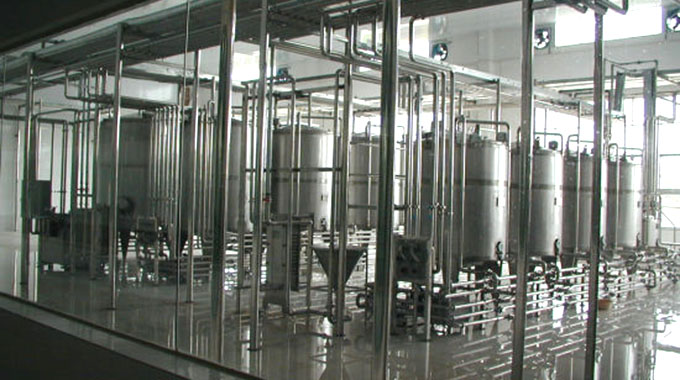Two years ago, President Emmerson Mnangagwa commissioned the Mwenezi
Mapfura/ Marula Factory at the border of Masvingo and Matabeleland South
provinces.
This factory spearheads a Government envisaged rural industrialisation project,
where local people tap-in to drive community development trajectories.
Villagers from Rutenga, in Mwenezi District, have shown commitment to rural
industrialisation in the area by their continued support to the factory that produces
wine from the indigenous Amarula/Umganu tree.
The tree, which is in abundance in these two provinces, has created jobs for locals
as they gather its fruits to make the wine.
The tree does not only produce wine, it can as well produce oil, juice, jam, porridge,
charcoal, cattle feed and manure.
For Mary Maguche (30), the introduction of the factory in a rural district has opened a
number of opportunities in her life.
It is my first time to see a factory in a rural area and at its inception we were taken
for training on how to gather Amarula in different grades. We started to do our work,
which is easy with financial returns. I was unemployed before, but now I can put food
on my table, courtesy of this factory, which gave us job opportunities, she said.
Maguche said the local cocktail bars and other outlets stock the local brew they have
easy access to, cutting travelling costs.
A number of bars here have this wine on their display. They no longer go to
Masvingo or other towns to look for other beverages since we have our own factory,"
Maguche said.
Government introduced Heritage-based Education, which has five components
namely; innovation, industralisation, research, community service and teaching.
All these are paying dividends to the Mwenezi community which is benefiting from
this philosophy.
The Plant Engineer at the Marula factory, Noel Marimo, attests that innovation,
research and industralisation are major drivers to the construction of plant.
This is a true reflection that Heritage-based Education is paying dividends. We have
seen people or companies importing berries from other countries to make juice.
While we have our own Marula in our vicinity, which can produce wine, jam, charcoal
and oil. Then we did our research in resource mapping and realised that Mwenezi
has a vast abundance of this Marula tree and we built this factory, he said.
In our first season we received 1100 tonnes of Marula from the community – a good
start. We managed to produce 40 percent of pulp in a fortnight, given that our plant
had small materials like buffer tank by then. Now we can produce two tonnes of pulp
per hour, after purchasing a big buffer tank. The pulp is used to make our wine. We
employed 150 local people at our inception," he said
Marimo said the rural industralisation product is now penetrating world markets being
sold in foreign countries.
The Marula has nuts that also produce Marula oil and it is on demand in European
countries. This indigenous oil will generate foreign currency. Marula can also
produce charcoal, which contributes zero carbon blue-print. When one wants
charcoal, he usually does deforestation, but we use Marula nuts shells to produce a
fuel similar to charcoal, he said.
The factory has not only helped villagers but has now been linked with the National
Biotechnology Authority and has good relations with, Masvingo Polytechnic College,
where students from the Engineering Department undertake practicals as well as
appreciation of a factory set-up, making it spearhead Education 5.0.
The local leadership is convinced that a factory can put an end to Gender-Based
Violence (GBV). Chief Neshuro, born Rodwell Rudo, highlighted that the factory has
positively impacted the community of Mwenezi and surrounding areas.
After this factory was opened, people now go to work and they can put food on their
tables. People are no longer quarrelling in their homesteads because they have work
to do and their local beverage at home. It is my wish that a number of both public
and private sectors can build modern factories in our area.
As traditional leaders, we are happy about this because it revives our traditional life-
style. Amarula beer is one of the traditional brews people used to drink after
Mushandira pamwe (working together) as a symbol of unity. Here, it has created jobs
for the local people," he said.
The Government says it is on a massive drive to equip rural areas, as the country
journeys for an upper-middle income society by 2030.



